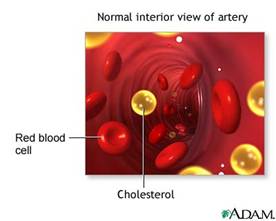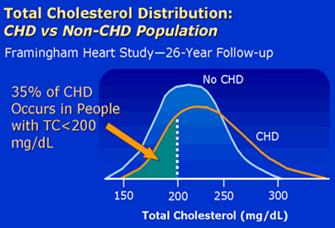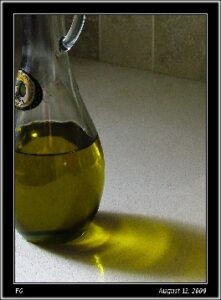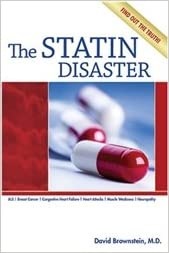
Cholesterol and saturated fat
- NOT the "Darth Vader" of ischaemic heart disease


Only 20-30% of our cholesterol is obtained from food and if you don't eat it, the body produces it
Give up steak, eggs, cheese, butter, etc. and your cholesterol may not budge a single point.
This is because your body can make as much as 1500 grams of cholesterol a day, which may be more than 6 times the amount you eat. Only about 20 – 30% (200-300mg) comes from food – primarily animal foods such as eggs, meat, poultry, dairy products, fish, and shellfish. E.g. According to the USDA, one large egg contains ~186 mg of cholesterol — all in the yolk.
Your liver and intestines make most of your body’s cholesterol from raw materials, such as fat, sugars and proteins. Harvard Health
The rate of cholesterol synthesis in the liver is under feedback control, to maintain a normally constant blood cholesterol level. When the dietary intake is high, liver synthesis is low; when intake is low, synthesis increases.
In addition to the liver and intestines, all of the body’s cells can produce cholesterol as needed (indicative of its importance in the body). In particular, the adrenal glands, placenta, and sex glands have high synthesis rates.
Low-cholesterol (non-enjoyable) diet lowered the serum cholesterol by a mere 0 to 4%. So concluded Ramsay and Jackson after reviewing 16 trials using diet in an attempt to lower cholesterol levels. [Ramsey et al, 1991]
Ancel Keys, originator of the erroneous diet-heart hypothesis even admitted:
.“There’s no connection whatsoever between the cholesterol in food and cholesterol in the blood. And we’ve known that all along. Cholesterol in the diet doesn’t matter at all unless you happen to be a chicken or a rabbit.”
– Ancel Keys
Health scam of the century! - The misleading, yet still-influential-today, diet-heart (lipid) hypothesis
Originated by biochemist Ancel Keys in the 1950’s, purports that:
(1) Dietary saturated fat raises blood cholesterol
(2) Elevated blood cholesterol causes cardiovascular disease (includes coronary heart disease, heart attacks, strokes, HBP)
leading us to believe that we should consume less saturated fat and more polyunsaturates (e.g. corn oil, margarine). This short video reveals the truth . . .
Keys cherry-picked data from only 6 countries out of 22 countries for which data was available to support his theory.

“The diet-heart hypothesis has been repeatedly shown to be wrong, and yet, for complicated reasons of pride, profit and prejudice, the hypothesis continues to be exploited by scientists, fund-raising enterprises, food companies and even governmental agencies. THE PUBLIC IS BEING DECEIVED BY THE GREATEST HEALTH SCAM OF THE CENTURY.“
– George Mann, SsD, MD, Former Co-Director, Framingham Heart Study
The truth
1. Dietary saturated fat has LITTLE EFFECT on blood cholesterol levels
Survey of South Carolina adults found no correlation of blood cholesterol levels with consuming foods high in saturated fat and/or containing cholesterol, such as steak, sausages, bacon and other fatty meats, lard, eggs, cheese, whole milk and butter [Lackland et al, 1990]
No connection was found between the composition of the food and the cholesterol level of the blood in the 1950’s Framington study. Almost 1000 individuals were questioned in detail about their eating habits. Drs. William Kannel and Tavia Gordon, authors of the report, wrote: ”These findings suggest a cautionary note with respect to hypotheses relating diet to serum cholesterol levels. There is a considerable range of serum cholesterol levels within the Framingham Study Group. Something explains this inter-individual variation, but it is not diet.” Their results were never published.
High, middle or low blood-cholesterol groups ate the same kind of foods. U. of Michegan meticulously analysed diets over a 24 hour period of >2000 individuals in Tecumseh, Michegan. No differences in dietary fats was found in the participants, when they were divided into 3 groups (low, middle, high), according to their cholesterol levels. Of interest – – – those with a low blood cholesterol ate just as much saturated fat as did those with a high cholesterol. [Nichols et al, 1976]
99 middle-aged London bankers accurately weighed and recorded diets over 2 weeks, revealing no connection between food and blood cholesterol levels [Morris et al, 1963]
Also, there is no evidence that low-cholesterol “fake foods” prevent heart problems – these include low-cholesterol dried eggs, margarine, non-dairy creamer. There is evidence, however, that they are linked to cancer.
2. High blood cholesterol levels have NOT BEEN PROVEN to CAUSE heart disease.

Large Framington, Massachusetts Heart Study debunked the “Elevated blood cholesterol causes heart disease” hypothesis, finding only a weak correlation.
This is quite different from being a cause of heart disease – – – by way of illustration, gray hair is correlated with getting older, but it doesn’t mean gray hair is the cause of getting old.
Ongoing since 1948, directed by the National Heart Institute; the study originally enrolled 5209 men and women, who had no signs of CVD; participants tested every 2 years. In 1971, 5124 of the original participants’ adult children and their spouses were also enrolled in the study.
This is the most famed and quoted study to supposedly support the hypothesis, but it simply concluded that having high blood cholesterol levels was the best indicator for heart disease risk. (And BTW, the correlation factor between blood cholesterol and heart disease was 0.36, an insignificant amount in a study this size, and no other study has found a higher correlation). Considering the results, they should have concluded that none of the factors they looked at predicted heart disease and blood cholesterol was not a significant predictor of heart disease. Note however, they did not conclude that cholesterol was the CAUSE of heart disease, which is what has been erroneously quoted.
The Framington study actually found that over a third of coronary heart disease occurs in people who do NOT have particularly high total cholesterol levels.

Half of all heart-attack victims have normal or low cholesterol.
Autopsies performed on heart-attack victims routinely reveal plaque-filled arteries in people whose cholesterol level was low.
LDL cholesterol (which is oxidized in the process of healing any damage to a weakened arterial wall) and saturated fat typically constitute less than 25% of arterial plaque.
“An analysis of cholesterol values . . . in 1,700 patients with atherosclerotic disease revealed no definite correlation between serum cholesterol levels and the nature and extent of atherosclerotic disease.”
– Michael DeBakey, MD, Famous heart surgeon
There is one particular type of cholesterol, called Lipoprotein(a), which is involved in cardiovascular disease (CVD).
In the case implicating saturated fat with cardiovascular / heart disease
Analyses of over 60 years of studies finds a verdict of – – –

23 nutritional factors were found to be moderately/strongly associated with heart disease, but . . . saturated fat was not one of them!
In 2009, researchers from McMaster University undertook “a systematic review of evidence linking a wide variety of nutritional factors and heart disease”, analysing 146 research studies involving millions of people over a span of 60+ years. Their results were published in the Archives of Internal Medicine.
Analysis of results of 21 epidemiologic studies (look for associations between things) showed that there is no significant evidence for concluding that dietary saturated fat is associated with an increased risk of coronary heart disease, stroke or other cardiovascular disease.
Results published in the Jan. 2010 Journal of Clinical Nutrition. 5-23 years of follow-up of 347,747 subjects determined that only 11,006 developed CHD or stroke. Consideration of age, sex, and study quality did not change the results.
A Medical Research Council survey showed that men eating butter ran half the risk of developing heart disease as those using margarine. Nutrition Week, 1991
As heart-disease rates skyrocketed in the mid-1900s, animal fat consumption was actually going down.
Meanwhile, vegetable oil (with its inherent excessive omega-6 content) was being consumed in dramatically increasing amounts.
You do not need statin drugs!
You do not need Lipitor™, Zocor™, Pravachol™, Mevacor™, Crestor™ or any other cholesterol-lowering statin drug (except in the rare case that you have inherited familial hypercholesterolemia).
The root CAUSE of coronary heart disease and other ischaemic cardiovascular diseases is NOT cholesterol. In order to sell you a solution to this frightening “death threat”, you have been sold the multi-billion dollar health scam of the century. Elevated blood cholesterol and saturated fats have been showcased as the major culprits causing arterial plaque leading to arterial occlusion and ischaemic CVD, with its consequential strokes, heart attacks, angina, arrythmia, thrombosis/embolism, HBP and coronary heart disease (CHD). However, the evidence is not there to support this.
References
Lackland, D T, et al, (Nov 1990) J Nutr, 120:11S:1433-1436
Morris JN et al, (1963) Diet and plasma cholesterol in 99 bank men. British Medical Journal ;1:571-576
Nichols AB, et al (1976) Daily nutritional intake and serum lipid levels. The Tecumseh study. American Journal of Clinical Nutrition; 29:1384-1392. PubMed
Nutrition Week, Mar 22, 1991, 21:12:2-3
Ramsay LE, Yeo WW, Jackson PR. (1991) Dietary reduction of serum cholesterol concentration: time to think again. British Medical Journal;303:953-957.
















